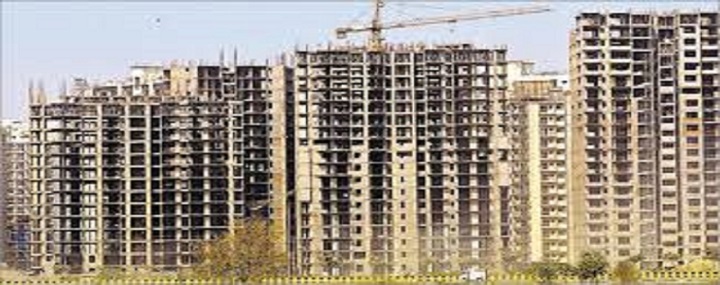


Builders resided in Greater Noida, Noida, and Yamuna Expressway are at ease as the Uttar Pradesh government has reintroduced the zero-period policy to deal with delayed real estate projects in the area. Under this policy, the government has decided not to accept the penal interest and other dues on contractors for the period during which their projects were delayed due to action over land grant matters. But, the advantage is only applied to builders who give a lettered pledge that they would finish their projects by June 2021. The benefits will ultimately trickle down to homebuyers. Not only will the policy guarantee quick delivery of housing projects that are held for years, contractors are also expected to pass on the interest benefit for the zero periods to buyers. You may be wondering how the zero-period policy will benefit you. To put in laymen terms, during a ‘zero period’, no interest is levied on land allotment charges. Developers in Uttar Pradesh generally buy group housing land by paying 10% of the total land cost and the rest 90% is paid in installments. These funds have to be repaid at a specific rate of profit. If the project gets stuck and the builder defaults on payments due to liquidity crunch or lack of funds, then additional penal interest is levied on the installments delayed. The zero-period policy defines that if housing project was delayed due to the order by a court or if the Real Estate Regularity Authority (RERA) or the National Green Tribunal (NGT), delayed settlement of agreement fulfilling, then the affected period would be granted as ‘zero’. The policy also includes a situation wherein a developer could not start the production due to the lack of an access road or the authority’s negligence to obtain land at the period of handover. Real estate developers are spared from penal interest and dues with few conditions. A developer cannot charge interest from consumers for the zero-period privilege given by the government. The zero-period policy was initiated in 2011-12 in Greater Noida to support the developers whose projects were affected owing to the farmers’ agitation. The zero-period policy is likely to revive projects of many builders who have been categorized as defaulters due to the pile-up of interest. Entering the debtor category implies a contractor cannot get a new construction loan from banks, which affects the fulfillment of housing projects. Under the zero-period policy, the penal interest is dismissed and builders are capable to restructure their investments. It is will help projects become net worth positive to qualify for the Rs 25,000 crore alternative investment fund announced by the central government recently.
- « Previous
- 1
- 2
- 3
- Next »